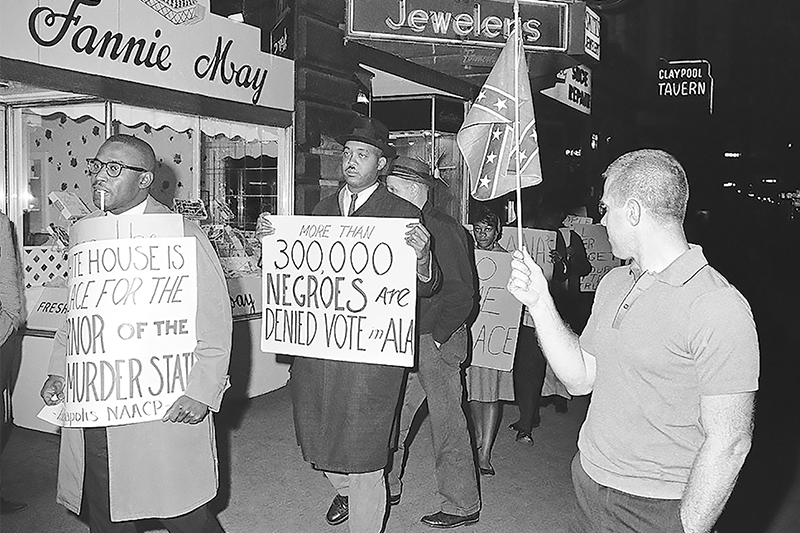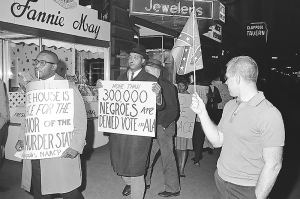Civil rights advocates protesting against discriminatory voting laws in 1964.

 More than 50 years later, the U. S. Supreme Court gave a damaging blow to democracy. In 2013, the highest court in the United States overturned a key provision of the Voting Rights Act. It then allowed nine states, mostly in the South, to change their election laws.
More than 50 years later, the U. S. Supreme Court gave a damaging blow to democracy. In 2013, the highest court in the United States overturned a key provision of the Voting Rights Act. It then allowed nine states, mostly in the South, to change their election laws.